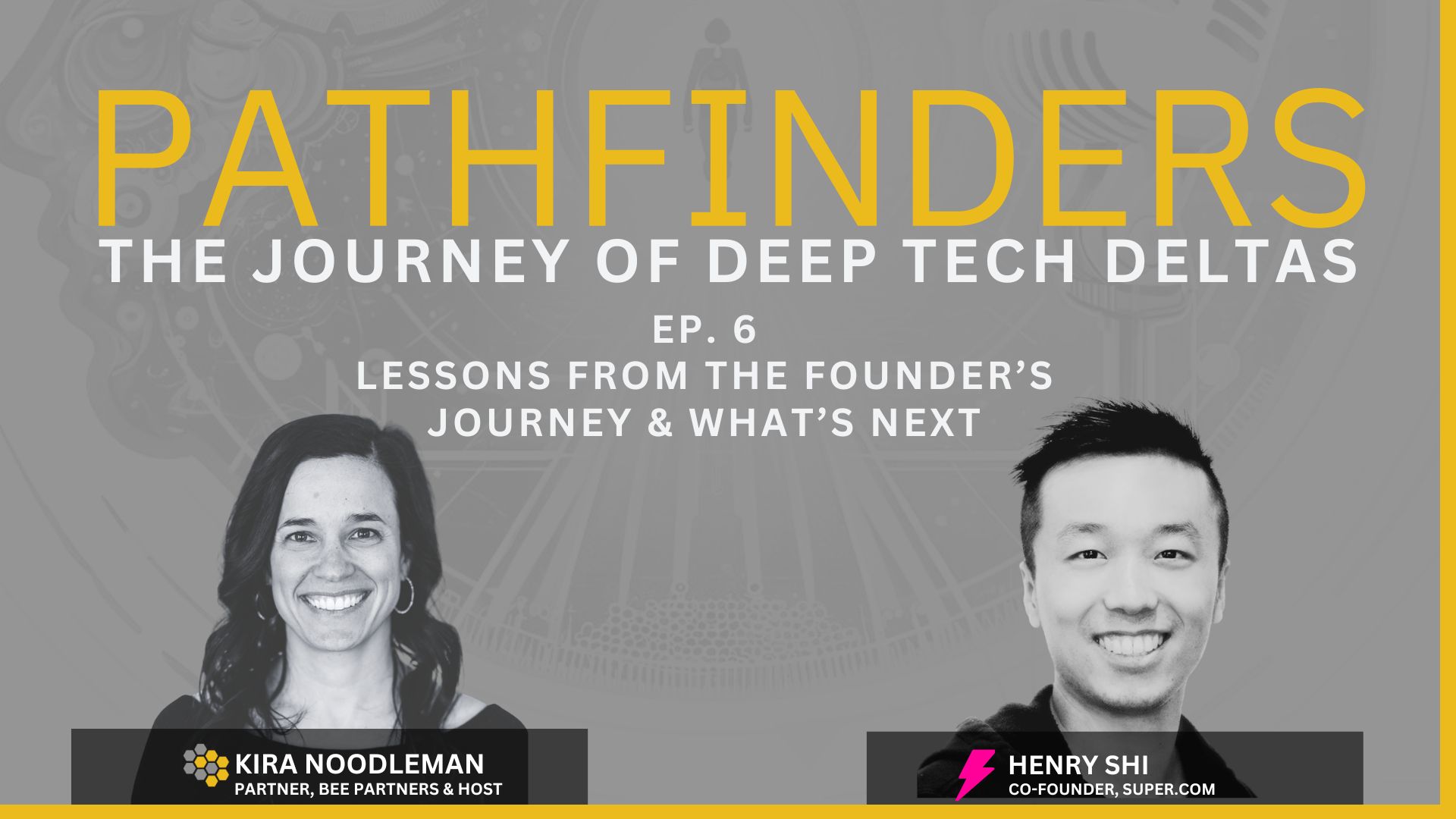Resilience, Reinvention, and the Founder Journey
In Part Two of our Pathfinders episode with Henry Shi, co-founder of Super.com, we go beyond AI-native strategies and dive into the human side of startup building. From Super’s early chatbot days to a full rebrand and pivot during COVID, Henry opens up about the personal growth, tough calls, and long-term thinking required to build a meaningful business in today’s volatile market.
Pathfinders | Ep. 6: Henry of Super.com
From Chatbots to Financial Empowerment
Super.com started as a travel chatbot during the Messenger bot craze—but the team quickly realized that real impact lay in helping customers save money, not just time. That insight led to a full pivot into travel deals, and eventually a broader fintech platform that now includes credit building, rewards, and financial tools for underserved users. The shift wasn’t easy. During the pandemic, Super lost 80% of its revenue overnight. But instead of folding, the team doubled down: raising a Series B, hiring over 100 people, and launching a full rebrand—all while becoming a remote-first company.
Today, over 80% of Super’s transactions are outside of travel, a sign of both strategic expansion and a deep commitment to solving real problems for real people.
Navigating the Late-Stage Landscape
Henry offers a grounded look at today’s late-stage funding and exit environment. IPOs are rare, M&A is selective, and public markets demand more revenue, more efficiency, and tighter margins than ever before. While hot AI infrastructure plays may still attract attention, most founders need to build durable businesses long before liquidity events. His message: stay focused on fundamentals, even when the hype fades.
What Changes—and What Doesn’t—as You Scale
Having founded three companies, Henry reflects on the journey:
- First startup: solved no problem, made no money
- Second: solved a problem, still made no money
- Third: solved a problem and made money
Over time, he’s leaned into building better systems—mission-aligned team structures, rigorous OKRs, and a culture of data-driven execution. These practices, not flashy features or fundraising headlines, helped Super survive and grow through some of the hardest moments.
Redefining Purpose After Stepping Back
Now that Henry’s stepped back from day-to-day operations and moved to the board, he’s in a new phase of reflection. What does purpose look like post-founder life? What does impact mean when you're no longer building every day? For now, he's focused on sharing knowledge, supporting early founders, and exploring what comes next—while acknowledging that the path to purpose isn’t always linear.
Angel Investing and the Value of Real Partners
As an angel investor, Henry looks for grit, ambition, and execution over polish. And when it comes to choosing your first checks, he advises founders to look beyond the pitch: real value-add often comes from peers or operators, not just VCs. That said, the best investors stick with you through tough times, follow on when needed, and don’t chase the next shiny object. Relationships matter—and the best ones last.
3 Key Takeaways:
- Evolving Identity: Stepping back doesn’t mean stepping away—founders can still create impact by supporting others and redefining purpose.
- Survive to Scale: Strategic pivots, operational rigor, and relentless listening to customers helped Super turn crisis into momentum.
- Know Your Partners: Founders need investors who commit long-term, but most tactical advice still comes from fellow operators.
Thanks for tuning in! To see more about the AI-native startup movement and track top companies, check out Henry's AI Leaderboard or listen to this episode of Pathfinders.



No Comments.